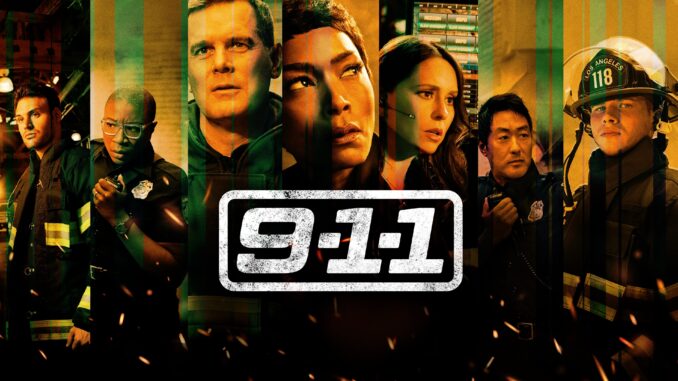
Bobby’s 9-1-1: Lone Star counterpart, Owen Strand (Rob Lowe), had his own near-misses with death— including one experience that should have demanded a captain’s funeral much earlier. Although Owen led the charge for many of 9-1-1: Lone Star’s most intense rescues, the nuclear reactor meltdown in the series finale realistically should have killed the transplant fire captain. 9-1-1: Lone Star set Owen up to sacrifice himself for his team, but the heroic act was undercut when, mere minutes later, it’s revealed that Owen survived his traumatic injuries and moved to New York. The surprise ending was frustratingly saccharine and whiplash-inducing. [9-1-1] would be doing Peter Krause a grave disservice by killing off Bobby so early and unnecessarily, whereas Owen Strand had undeniably run his course…
The series finale of 9-1-1: Lone Star would have benefited greatly from Owen dying, but 9-1-1 stands to gain nothing from killing off Bobby. While 9-1-1: Lone Star failed to commit to a full-circle ending where Owen gave his life for the greater good, 9-1-1 letting Bobby die would only underscore how many loose ends the death would leave in its wake. On a more basic level, the franchise would be doing Peter Krause a grave disservice by killing off Bobby so early and unnecessarily, whereas Owen Strand had undeniably run his course by 9-1-1: Lone Star season 5.
The Lone Star finale delivered an emotional rollercoaster, but one moment stood out above all: Owen surviving while Bobby met a heartbreaking end. Fans are left questioning whether this twist strengthened the story or made Bobby’s sacrifice feel unnecessary. Let’s break down why Owen’s survival changes everything—and not for the better.
Owen’s Survival: A Miraculous Yet Frustrating Turn
How Did Owen Even Survive?
Owen found himself in an inescapable situation, yet somehow, he emerged relatively unharmed. While the series has never shied away from dramatic saves, this one felt particularly far-fetched.
Was It Plot Armor or a Meaningful Choice?
Fans immediately speculated that Owen’s survival wasn’t earned but rather a result of “plot armor”—a trope where main characters are kept alive despite impossible odds.
Bobby’s Death: A Painful Sacrifice
Why Did Bobby Have to Die?
Bobby’s death wasn’t just a shocking moment—it was meant to add weight to the finale. However, with Owen surviving, Bobby’s sacrifice feels less impactful.
A Heart-Wrenching Goodbye
Bobby’s final moments were filled with raw emotion, leaving viewers devastated. His death was designed to be meaningful, but Owen’s survival takes away from that gravity.
The Impact on Fans
Audience Reactions: Did the Show Betray Viewers?
Social media exploded with mixed reactions. Many fans felt cheated, arguing that if Owen could survive, Bobby should have been given the same chance.
Emotional Investment Undermined
Audiences invest in characters because their struggles feel real. When one survives against all logic while another perishes, it disrupts that emotional connection.

Did the Show Cheapen Bobby’s Death?
A Lesson in Storytelling Consequences
Every major character death should have weight. By keeping Owen alive, the show risks making Bobby’s sacrifice feel pointless.
What Could Have Been a Stronger Choice?
Perhaps both could have survived, or Bobby’s death could have been handled in a way that didn’t feel overshadowed by Owen’s luck.
What This Means for Future Seasons
Will the Writers Address the Controversy?
It’s unclear whether future episodes will acknowledge this imbalance or move past it entirely.
Character Development Moving Forward
Owen’s survival may need stronger justification in upcoming storylines, or it could damage the show’s credibility.
Conclusion
The Lone Star finale was undoubtedly emotional, but Owen’s unbelievable survival changed the way fans view Bobby’s death. While storytelling thrives on unpredictability, balancing stakes and realism is key. If one character can survive impossibly, the loss of another feels hollow. Moving forward, the showrunners must find a way to restore the weight of Bobby’s sacrifice, or they risk alienating their audience.